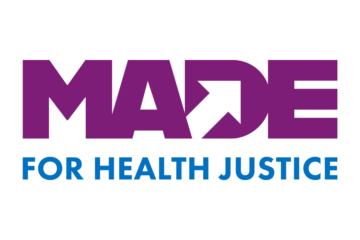
Environmental Justice has roots in the civil rights movement and was created by Black and Indigenous communities of color fighting the injustices of environmental racism. Initiated by the protests in 1982 against a PCB landfill in Warren County, the seminal 1987 report “Toxic Wastes and Race in the United States” linked racism and environmental hazards, and in 1991 the Principles of Environmental Justice were established. The environmental justice movement galvanized a series of government actions and generated attention and research around environmental exposures and health disparities.
The path to health equity requires environmental justice – now more than ever. The attacks on science and gutting of environmental regulations will exacerbate the health disparities in frontline environmental justice communities at a time when they are experiencing the disproportionate impacts of the climate crisis. National environmental justice networks are mobilizing to #ActForCommunityHealth and prevent regulatory rollbacks while building a Just Transition for communities and workers on the frontlines of climate change. Public health has an important role to play in supporting these community-led movements.
As a young activist and environmental justice organizer over a decade ago, I was engaged in public health work before I ever knew to call it that. I was part of community organizing campaigns working to clean up toxic hazards at urban brownfield sites and fighting to stop pollution from fossil fuel infrastructure. We weatherized homes and had youth leadership training programs, food justice projects, and workshops on air pollution and asthma. But I didn’t think of it as public health work and didn’t know that public health was about so much more than the healthcare system or the health statistics we used in grant applications.
In 2014 I transitioned to my current role at the Rhode Island Department of Health, where I run a CDC-funded asthma program. RIDOH prioritizes health equity, and I quickly learned the terminology of socioeconomic and environmental determinants of health, risk factors, upstream interventions, and the health equity pyramid. The experiences I had in environmental justice work translated well into public health, and I continued to work on many of the same issues – but as a governmental public health worker with a very different set of resources, opportunities, challenges, and limitations.
I’ve gained a deep appreciation for the field of public health and the currents of social justice that run through it. I’m grateful for opportunities such as the Bloomberg American Health Initiative fellowship for the MPH program at Johns Hopkins and the Kresge Foundation’s Emerging Leaders in Public Health Initiative. I’ve started a term as an APHA Governing Councilor for the Environment Section, and through APHA’s Environmental Justice Subcommittee I’ve connected with other environmental justice organizers and researchers working in public health. At the 2017 APHA meeting in Atlanta the theme was climate change and there was an environmental Justice pre-event, “Climate Changes Health: Ensuring Environmental Justice Underlies Public Health’s Climate Change Work.” Last year in San Diego the Environmental Justice Town Hall highlighted “Progress in California and Resistance in Flint Michigan” and resulted in a website with resources for continuing the struggle for environmental justice.
As a field, public health can be a better ally and partner to the environmental justice movement and frontline communities. The cost of the APHA Annual Meeting excludes frontline environmental justice communities, violating a fundamental environmental justice tenet where those who are directly impacted speak for themselves and set the policy/research agenda. Academic public health institutions need to address extractive institutional relationships with environmental justice communities, and governmental public health agencies are often implicated in policies and decisions that exacerbate injustices. Health equity advocates can take action within our institutions to build authentic relationships with environmental justice communities, drive funding to environmental justice organizing, and mobilize institutional support for local or national environmental justice policy campaigns. This year the Governing Council will vote on the proposed policy statement Addressing Environmental Justice to Achieve Health Equity. This policy statement lays out the framework and evidence-based strategies for environmental justice in public health, and establishes action steps for public health to achieve the goals of those strategies.
As APHA rallies “For Science, For Action, and For Health,” let’s take action to support the health and leadership of frontline environmental justice communities across the country.
Environmental Justice Highlights at APHA 2019
- National Environmental Justice Town Hall, Nov. 2, 9:30 a.m.-4 p.m.
Environmental Justice: Addressing Cumulative Impacts through Policy - Panel discussion, Nov. 5, 10:30 a.m.-noon
Environmental Justice Perspectives on Climate Resilience - Speak in support of the proposed APHA EJ Policy, Nov. 3, 3:30-6:30 p.m.
Joint Policy Committee Public Hearings B: Environmental Health
Julian Drix, asthma program manager at the Rhode Island Department of Health, is a member of the first class of 40 Under 40 in Public Health. This post was first published on the APHA Annual Meeting blog as part of the “Fresh Perspectives” series, presented by the de Beaumont Foundation.




